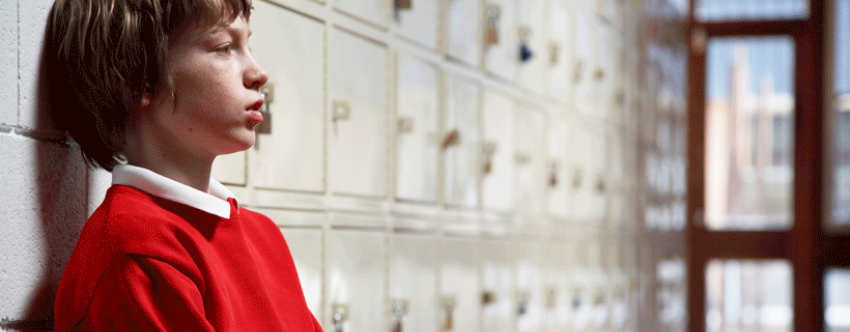News & Views

Tips for poverty-proofing your school
No family in modern Britain should be struggling to put food on the table, heat their homes and clothe their children, but with soaring food and energy costs, plenty of families are being pushed to their absolute limit. Living is a heavy burden.
The Child Poverty Action Group estimates that one in three school-age children in England living in poverty (800,000) is not receiving a government-funded school lunch. Hundreds of schools are now running food banks so children have enough to eat.
The NASUWT found that teachers are increasingly providing food and money to pupils coming to school hungry amid the cost-of-living crisis.

Getting worse...
The Children’s Society reports that current benefit rates leave households unable to afford even the everyday essentials, and debt, homelessness and foodbank use are rising exponentially.
According to the End Child Poverty Coalition, there were 3.6 million children aged 0–15 living in poverty between 2021–22. That represents a lot of families and this figure is likely to escalate much higher given the cost of living in Britain today. It also depends on where you live with child poverty levels highest in the north east.
Growing differences between income and expenditure affect all sectors of society but are especially serious for poorer families. Lots of families are facing a massive struggle to keep their heads above water financially and plenty are already drowning in debt. Living hand-to-mouth is a constant source of anxiety and the Micawber Principle is more relevant now than ever before.
Levelling the playing field
Making the school day affordable for children and their families is key so that poverty does not make school life hard or make people feel different. Kuiper (2022) notes that high-poverty schools need the expertise of successful headteachers who are aware of and acknowledge the impact of poverty on pupils’ social and academic learning. This requires all staff to be able to understand what it is like to face obstacles through the eyes of a child living in poverty; they champion social justice.
Considering the cost-of-living crisis, schools seeing a significant rise in real poverty are now making social justice and equity key strategic and moral imperatives of their improvement strategy. They are giving high priority to reducing the cost of the school day.
Poverty-proofing the school day
To help loosen poverty’s grip, many have embraced the Poverty Proofing the School Day initiative started by Children North East, an innovative charity that specialises in supporting schools to remove every single barrier to pupils who are growing up poor.
Poverty Proofing the School Day is a nationally recognised tool for identifying the barriers children living in poverty face to engaging fully with school life and its opportunities. It involves engaging in meaningful and effective consultation with students, school staff and senior leaders and ensuring that every little thing counts. It aims to make school a more equitable place for all students so that no activity or event within school life excludes those who have fewer financial resources. Children going without means they are missing out and this is what the charity wants to tackle.
It is about giving children a ‘hand up, not a hand out’.
It offers a pathway for schools to address often invisible inequalities within their activities and to employ a range of simple and practical measures to help minimise costs, reduce stigma and ensure that children and young people have equal access to opportunities at school. The work of Children North East involves going into schools to carry out a poverty-proofing audit (all over the country) which helps it to understand what the lived experience of children is within a school in terms of the structures, routines and procedures. It looks at 16 different themes such as resources, uniforms, homework, celebrations, etc and then provides comprehensive feedback by noting what’s working well and recommendations to consider.

Conduct an audit
A poverty-proofing audit helps all staff recognise the effects of poverty and how it pertains to the context of their school, community and children. It recognises that poverty goes beyond money and affording the basics but it is also about a lack of choices and opportunities. An audit gives everyone a sobering look at the reality of what life is like for those struggling financially and the cost of having fun at school. It is a whole-school approach to improving the wellbeing of children from low-income and disadvantaged backgrounds and aims to break the link between educational attainment and financial circumstances.
Schools might adopt a poverty-proofing the school day policy or incorporate it as part of their equality and equity policy. Poverty-proofing is something that involves everyone and the opinions and experiences of children and families really matter. The financial worry and anxiety that many parents are experiencing are also felt by children – they recognise who is in poverty and who isn’t by what they have and don’t have.
As part of an audit, Children North East sends out surveys to parents, staff and governors but speaks to all of the children. Gathering the views of children and young people of all ages using a children’s rights-based approach is central to poverty-proofing as it enables them to fully understand the school context and taps into the power of pupils’ voices.
Helpful tips to poverty-proof your school
Children North East recognises that a ‘one size fits all’ approach to tackling poverty in the classroom doesn’t work but as a starter, it suggests nine things you can do to start poverty-proofing your day, some of which are included below with further ideas. One of its key recommendations is that all teaching, events and activities are planned with affordability and accessibility in mind.
- Consider using ‘The Cost of the School Day calendar’ to help identify possible cost barriers during the academic year.
- Avoid giving FSM students packed lunches in brown or white paper bags – provide a ‘grab bag’ option for all students instead.
- Increase the share of students eligible for free and introduce reduced-price lunches.
- Food technology can be expensive when it comes to providing food for lessons. Ask for donations at the start of the term rather than per lesson and rather than students bringing in food, the school buys it.
- Provide breakfast for children to support their daily nourishment and access to school.
Kit and apparel
- Ensure that swimming costumes, towels and accessories are available for any pupil without them.
- Make parents aware of Uniformerly – an award-winning online school uniform marketplace, where parents and PTAs can buy, sell, give away and recycle outgrown school uniforms. Look at the advice for affordable school uniforms here.
- Look at ways you can provide children with a free school blazer.
- Have a more relaxed approach to PE kits. Avoid branding on PE kits – keep them plain so they can be bought from supermarkets.
- Non-uniform days are a massive pressure for some children who are embarrassed by their clothes. Have an odd sock day instead or encourage students to wear a certain colour as part of their uniform.
- Move away from the idea of dressing up for World Book Day. Instead, decorate accessories in school for all students rather than having dressing-up days.
- Encourage children to use standard backpacks and stationery rather than designer or expensive items. Some schools purchase school bags so everyone has the same bags.
Donations and contributions
- When it comes to fundraising, organise a drop box or bucket for students to donate to as they come into school rather than coming to the front of the class.
- Aim to make the donation process as anonymous as possible for things like harvest festival etc.
- Think carefully about the wording on letters for trips and activities. Invite parents to contact the school if they are worried about being able to afford things.
- Review the cost of activities and trips and check whether everyone can access the opportunity. Are there alternatives that ensure everyone has access?
- Support the distribution of food bank provision and support for families in crisis.
Close the gaps
- Avoid the post-summer question or writing activity, 'Where has everyone been on holiday?' or 'What did you all get for Christmas?'
- Explore summer school and academic holiday support programmes for out-of-school access.
- Include a dedicated area of the school website that acknowledges the cost-of-living crisis with signposting to links/sources of support.
- Ensure that visual displays discuss the cost-of-living crisis and signpost support for families in school entrances/reception areas.
- Work closely with community leaders, organisations and charities to support the needs of your children, families and communities
Poverty-proofing might only seem relevant to schools in deprived areas but this isn’t the case. It applies to all schools because poverty isn’t always visible or obvious. This includes independent schools too as pupils on bursaries need to be considered.
And finally…
Staff, governors and parents have always been creative and optimistic when it comes to levelling the playing field but the Poverty-Proofing the School Day initiative goes further and provides a much-needed framework for diagnosing local needs and the concept of ‘doorstep disadvantage’ to ensure that equity is combined with equality.
Key to poverty-proofing is best practice resource sharing and dissemination of evidence-informed approaches to tackling educational disadvantage.
Watch an introductory video of the Children North East's Poverty Proofing Process here. Contact: Poverty Proofing the School Day Manager Lorna Nicoll at 07857500890 or via the website.
About the author

John Dabell trained as a teacher 20 years ago, starting his career in London and then teaching in a range of schools in the Midlands. In between teaching jobs, he trained as an Ofsted inspector and worked as a national in-service provider, project manager, writer and editor. He has written many educational books and children’s books.